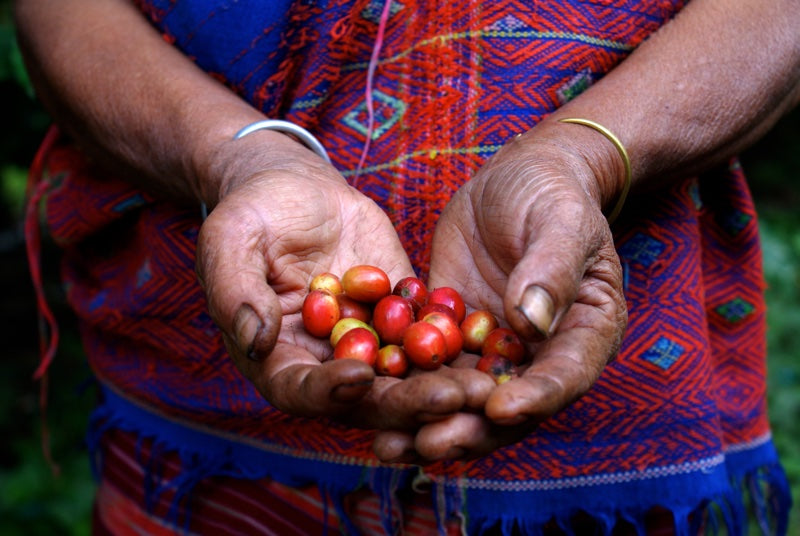
The Importance of Fair Trade Products
In a world driven by consumerism, it is vital to consider the impact our choices have on the environment, society, and global economy. The concept of fair trade has emerged as a powerful tool to promote ethical practices and sustainability in various industries. This article explores the importance of fair trade products, shedding light on their benefits for producers, consumers, and the planet.
Fair trade encompasses a set of values and practices that aim to create a more equitable and sustainable trading system. It focuses on providing fair wages, safe working conditions, and promoting environmentally friendly production methods. By supporting fair trade, consumers can contribute to positive change and make a significant impact on the lives of producers worldwide.
What is Fair Trade?
Fair trade is an alternative approach to conventional trade that prioritizes social, economic, and environmental justice. It ensures that producers receive fair compensation for their labor, promotes gender equality, and safeguards human rights. Fair trade products often carry certifications to validate their adherence to specific standards and principles.
The Principles of Fair Trade
Fair trade operates on several key principles. Firstly, it seeks to empower producers by fostering long-term, direct relationships and providing them with support and resources to improve their livelihoods. It also promotes fair prices and wages, ensuring that producers receive a decent income for their work.
Additionally, fair trade emphasizes sustainability, encouraging environmentally friendly production methods and discouraging the use of harmful chemicals. It also focuses on social responsibility, promoting safe working conditions, gender equality, and community development.
Empowering Producers
One of the core objectives of fair trade is to empower producers, particularly those in developing countries. By establishing direct trade relationships, fair trade allows producers to gain access to international markets, bypassing intermediaries that often exploit them. This empowerment leads to increased economic stability and self-sufficiency for producers and their communities.
Ensuring Fair Prices and Wages
Fair trade ensures that producers receive fair prices for their products. In conventional supply chains, middlemen often drive down prices, leaving farmers and artisans struggling to make ends meet. Fair trade cuts out these intermediaries, enabling producers to earn a sustainable income that covers their production costs and allows for future investment.
Promoting Sustainability
Fair trade encourages sustainable production methods that minimize environmental impact. Producers are encouraged to adopt organic farming practices, reduce waste and pollution, and protect biodiversity. By supporting fair trade, consumers contribute to preserving natural resources and mitigating the harmful effects of industrial agriculture.
Enhancing Social Responsibility
Fair trade promotes social responsibility by advocating for safe working conditions and fair treatment of workers. It ensures that producers have access to healthcare, education, and other essential services. Moreover, fair trade initiatives actively combat child labor and promote gender equality, empowering women in traditionally male-dominated industries.
Supporting Local Communities
Fair trade initiatives prioritize community development by reinvesting a portion of the profits into local projects. These projects may include infrastructure improvements, educational programs, and healthcare facilities. By supporting fair trade products, consumers indirectly contribute to the betterment of these communities.
Reducing Exploitation and Child Labor
Fair trade works towards eliminating exploitation and child labor by providing fair wages and ensuring proper working conditions. By creating economic opportunities and empowering producers, fair trade offers a viable alternative to exploitative practices. Supporting fair trade products helps combat these injustices and protects vulnerable workers.
Ensuring Transparency and Accountability
Transparency and accountability are vital components of fair trade. Certifying bodies ensure that producers adhere to fair trade standards and principles. Consumers can look for labels such as Fairtrade International or other recognized certifications to ensure they are supporting genuine fair trade products.
Access to Fair Trade Products
Access to fair trade products has significantly improved over the years. Many grocery stores, specialty shops, and online platforms offer a wide range of fair trade options, including coffee, chocolate, tea, clothing, and handicrafts. The increasing availability of fair trade products allows consumers to make conscious choices that align with their values.
The Environmental Impact of Fair Trade
Fair trade promotes sustainable agriculture and production methods, reducing the use of harmful chemicals and minimizing waste. By choosing fair trade products, consumers support environmentally responsible practices and contribute to the preservation of ecosystems and biodiversity.
Fair Trade Certifications
To ensure the authenticity of fair trade products, various organizations provide certifications. These certifications guarantee that specific social, economic, and environmental criteria have been met. Some well-known certifications include Fairtrade International, Rainforest Alliance, and Fair Trade Certified. Look for these labels when shopping for fair trade products.
Challenges and Criticisms
While fair trade has made significant strides in improving the lives of producers, it still faces challenges and criticisms. Some argue that the cost of fair trade products can be higher than conventional alternatives, making them less accessible to lower-income consumers. Additionally, ensuring compliance with fair trade standards across global supply chains remains a complex task.
Conclusion
The importance of fair trade products cannot be overstated. By supporting fair trade, consumers contribute to a more equitable and sustainable global economy. Fair trade empowers producers, ensures fair compensation, promotes sustainable practices, and fosters social responsibility. By making conscious choices, consumers have the power to create positive change and shape a better future for our planet.
FAQs
- How can I identify fair trade products?
- Look for certifications such as Fairtrade International or other recognized labels.
- Are fair trade products more expensive?
- Fair trade products may have slightly higher prices due to fair compensation for producers and sustainable production methods.
- What industries offer fair trade products?
- Fair trade products are available in various industries, including food and beverages, clothing, handicrafts, and more.
- How does fair trade benefit producers?
- Fair trade empowers producers by providing fair prices, access to international markets, and support for community development.
- Can fair trade really make a difference?
- Yes, fair trade can make a significant impact by promoting ethical practices, reducing exploitation, and supporting sustainability.




Leave a comment
This site is protected by hCaptcha and the hCaptcha Privacy Policy and Terms of Service apply.